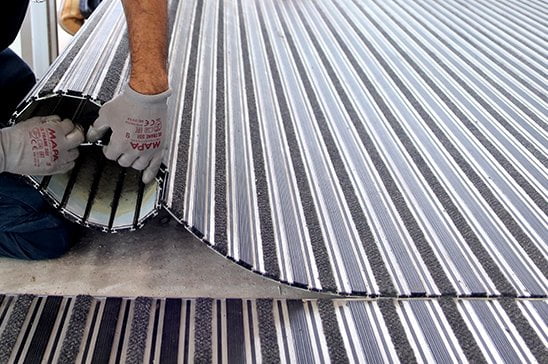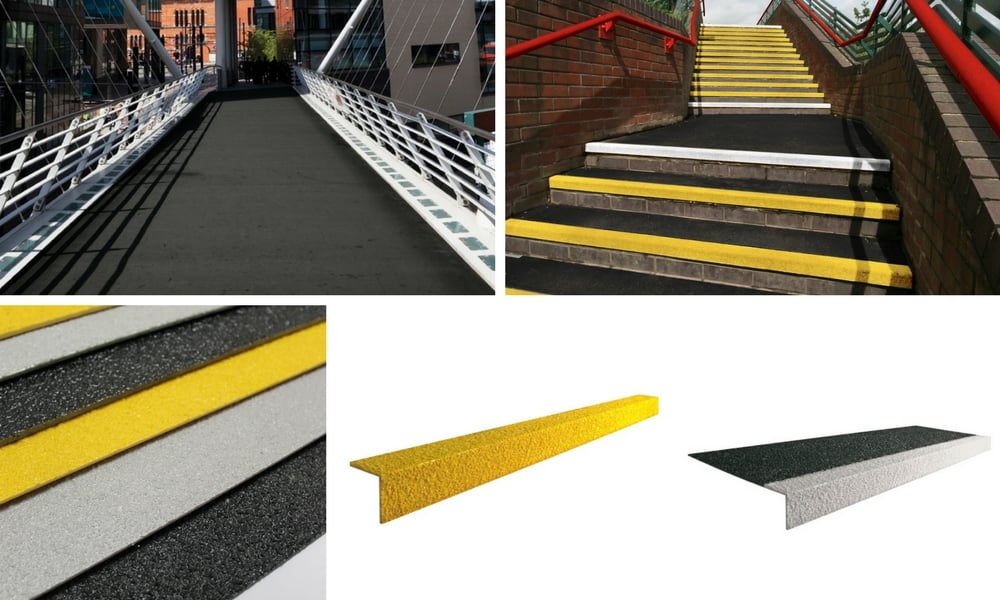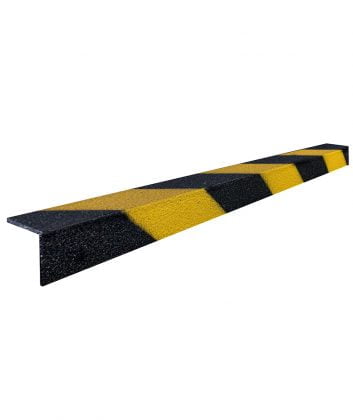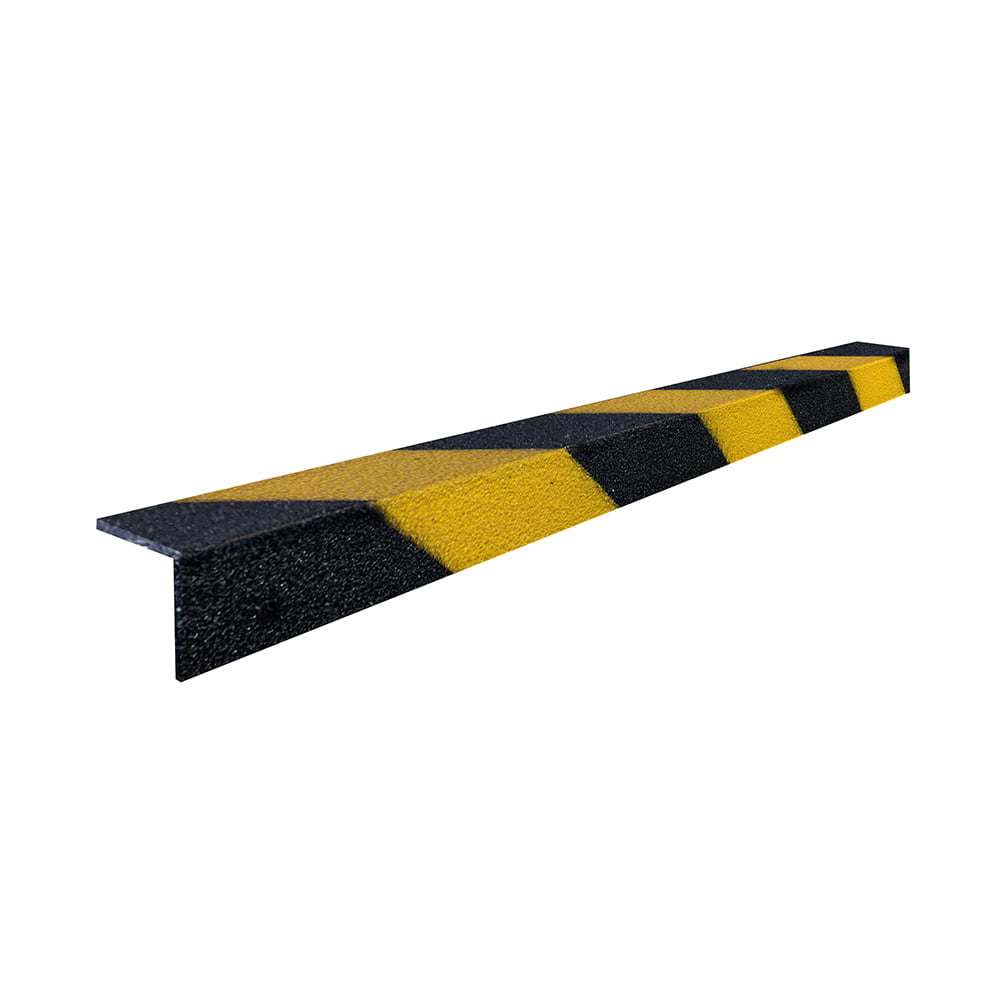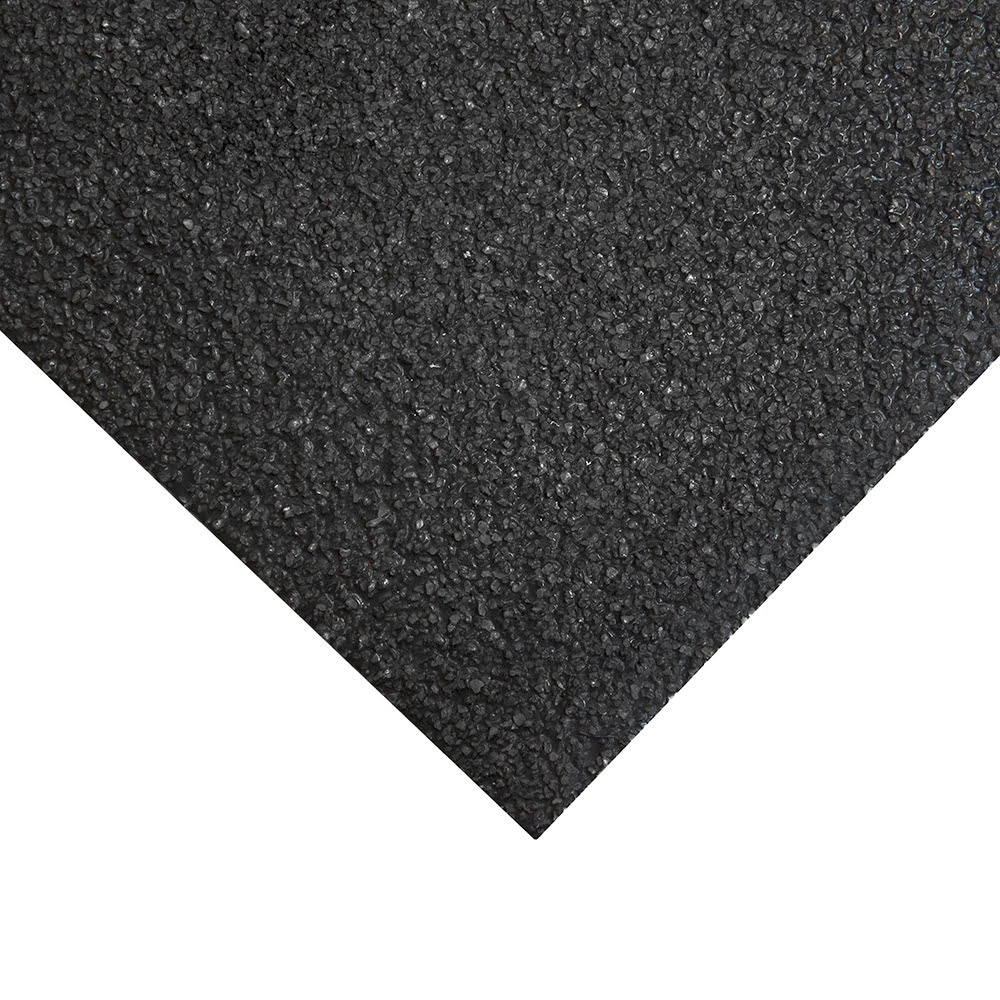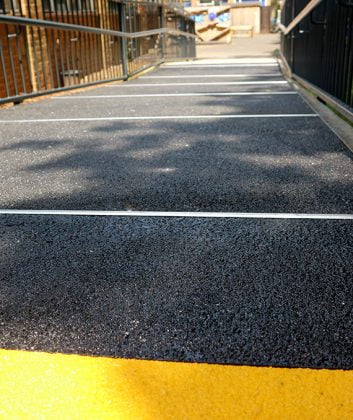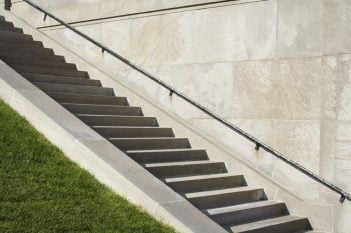Slips and trips on steps and stairways are a common cause of accidents and injuries in both public and professional environments, especially during the winter months with rain and ice causing surfaces to become more slippery and hazardous. They can result in serious injury and in some cases death. It’s important to include external steps and stairways into consideration when reviewing site safety, so here we recommend a few stair safety tips that are easy to implement.
How can I make outdoor stairs safer?
Our 3 simple steps to improve outdoor stair safety include; having appropriate handrails installed, ensuring steps and stairways are highly visible in colour and that the stair surface is textured so that footwear has something to grip on to.
We review all 3 steps in detail below:
Handrails
Workplaces are required to have handrails provided on staircases, but they are also an effective means of preventing injury while using stairways in public areas. They can allow an individual to steady themselves in the event of a trip or fall and prevent any further or serious injury. Consider installing stair rails to help decrease the risk of slips and falls. Having one either side of a stairway can help to improve stair safety in the area.
A handrail needs to allow a firm grip while not being too hot or cold to the touch. A GRP handrail has a relatively low thermal conductivity and so would prove to be the most beneficial type of material to use.
Colour Scheme
It is also important to ensure that the steps or stairways of free of any repeating patterns or colour schemes, as this can make it difficult for some individuals to judge the depth perception of the stairs which can lead to an increased risk of trips or slips.
Consider using a single colour for stairs but ensuring that the edges are painted with a bold colour such as white, so individuals are able to see where the next step is. We recommend the COBAGRiP® Stair Nosing, manufactured with chamfered back edge for additional safety. The COBAGRiP® Stair Nosing is designed with bright colour visibility which meets DDA requirements. Making it the ideal stair nosing for preventing accidents on stairs.
Surface
Ensuring that the surface of the stairs is rough, and an individual’s shoes is able to grip it, is also an important factor in helping maintain stair safety on steps and stairways. Smooth surfaces provide an increased change of slips, especially during the winter months with rain and ice.
Stair surfaces need to be well maintained in order to offer continued safe use. We recommend the COBAGRiP® Stair Tread, the ideal stair surface to help prevent accidents on stairs. The COBAGRiP® Stair Tread is designed to fully cover the stair area and includes contrasting coloured nosing which meets DDA requirements. The COBAGRiP® Stair Tread can also be used in conjunction with the COBAGRiP® GRP Sheet which is the easy to install and almost maintenance-free solution to combating slip hazards such as spilt liquids and ice.
The COBAGRiP® range consists of a range of UV stabilised GRP sheets, treads and stair nosing that offer exceptional slip-resistance in external areas. If you’re looking for easy-to-install and almost-maintenance free sheets, treads or stair nosing, in order to make your external steps or stairway a safer place, the COBAGRiP® range is the ideal solution to help improve stair safety in either professional or public areas.

If you’re unsure about how to increase outdoor stair safety for your environment get in touch with our team for more tips and advice.


